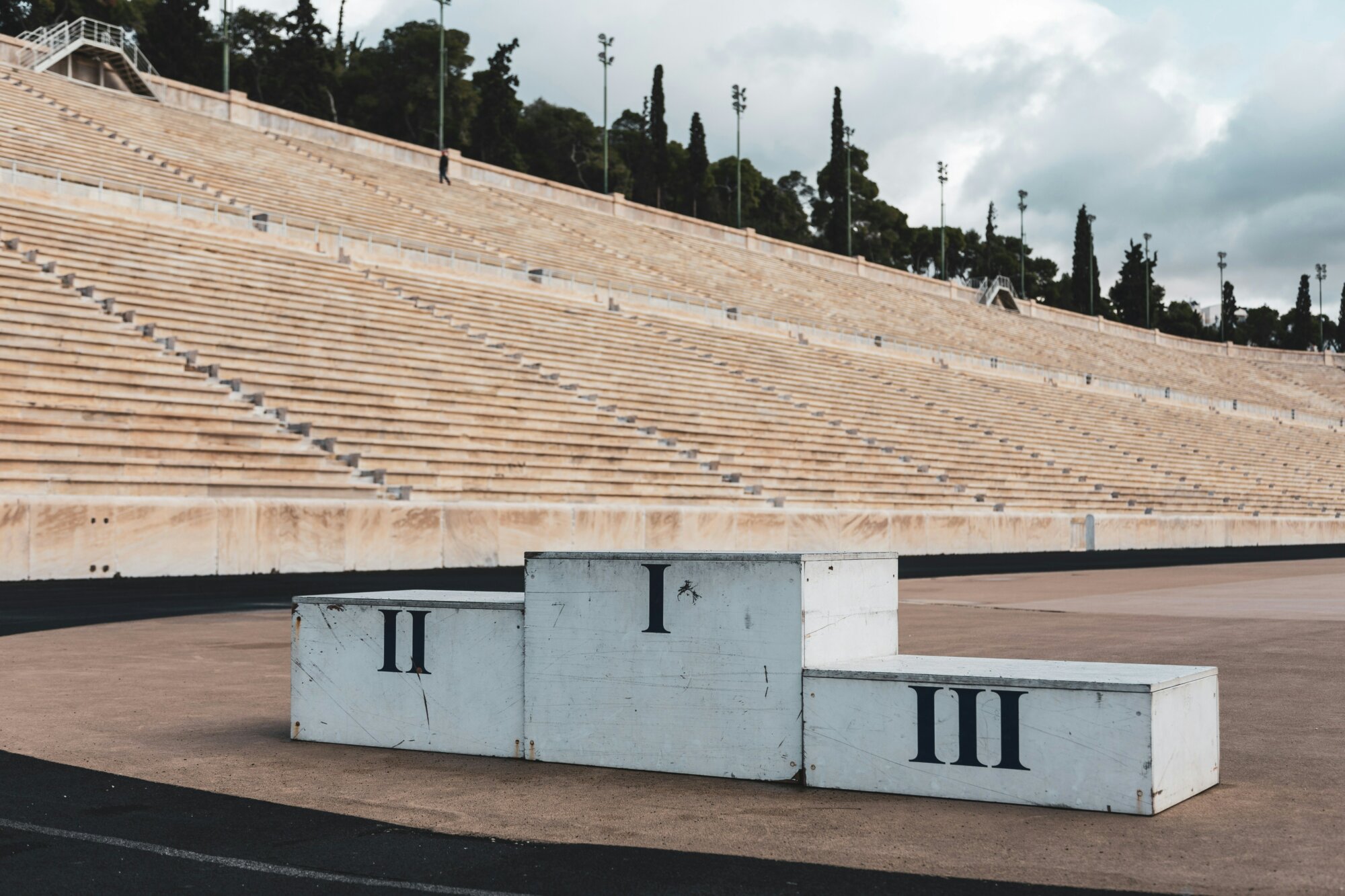The Olympic Games, this incredible sporting event and often the ultimate goal for an athlete, are full of anecdotes that have shaped their history. As the 2024 Olympics in Paris approach, 100 years after the last French edition of the Summer Games, Brandon Valorisation reveals some remarkable facts and anecdotes that focus on the sports, cheating, medals, but also the place of women in sport.
Get ready for some discoveries!
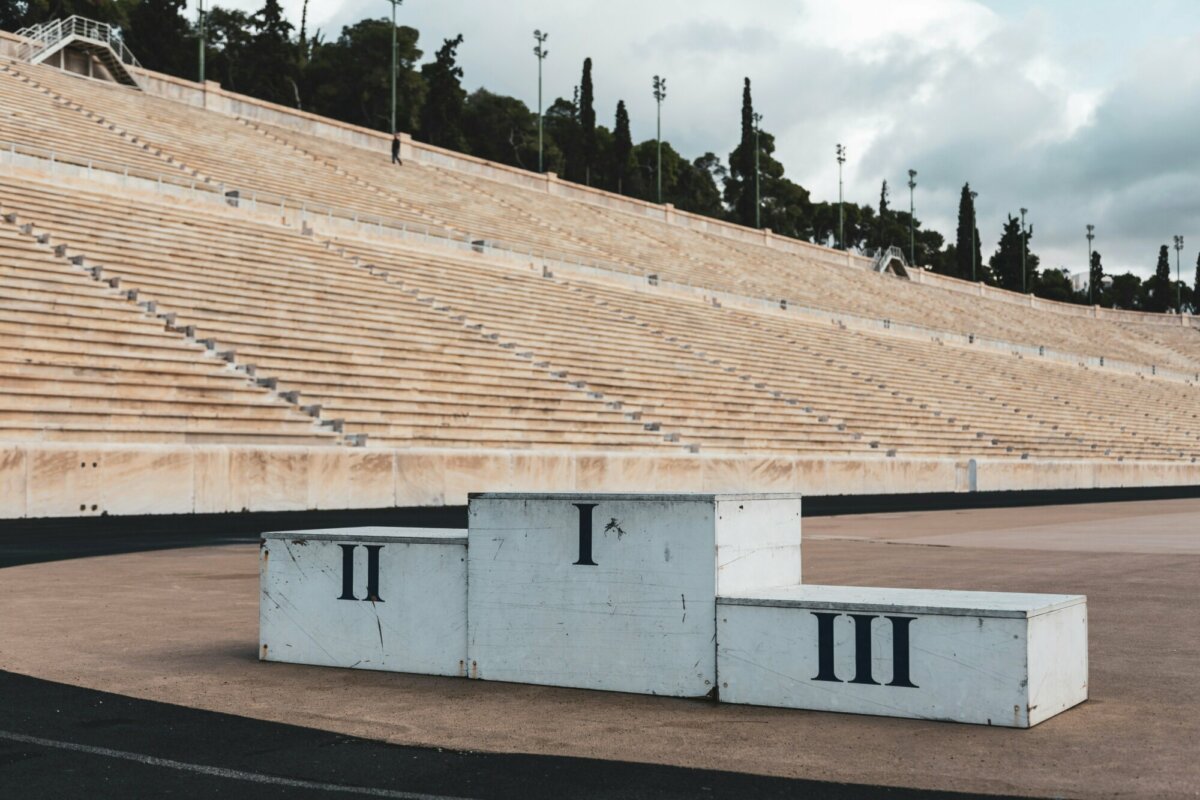
Competitions that have now disappeared from the Games
Live pigeon shooting: the 1900 Paris Games organized this competition in which nearly 300 live birds (not clay pigeons) were used as targets. It is a Belgian shooter, Léon de Lunden, who won the event with 21 pigeons killed. The event was, of course, not renewed.
Underwater swimming: To win, the athletes had to swim as far and as long as possible. Points were awarded according to both the meters traveled and the seconds spent underwater. In 1900, it was a Frenchman, Charles Devendeville, who won the event by swimming 60 meters in 1 minute and 8 seconds, becoming the first French Olympic swimming champion. The problem here: the public couldn’t see much, and the competition was eventually scrapped.
But also… the single shot running deer, which involved shooting at a metal deer running 100 meters; standing high jump, practiced until 1912; tug of war, or individual synchronized swimming.
Artistic Olympic events: Between 1912 and 1948, 150 medals were awarded in the fields of painting, sculpture, music, literature, and architecture. To participate, artists had to send their works related to sport to the Olympic Committee of their country, which pre-selected them before a major exhibition during the Games. The winners chosen by the jury then were awarded medals. See the list of Olympic medalists in artistic competitions here.
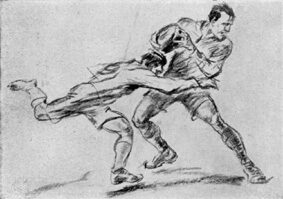
Gold medal for drawing in 1928: Rugby, by Jean Jacoby
Innovations of Paris 2024
A purple athletics track: For the first time, the athletics tracks installed in the Stade de France will be painted in violet. A tribute to the American artist Prince and his Purple Rain? Well, no. The organizing committee explained that it wanted to be creative and referred to the three reference colors chosen for these Games, which are blue, green and purple. These colors will be found on all competition sites.
New sports are making their appearance: This year, 4 new sports are being added to the sports present in previous editions. Breaking (dance), climbing, skateboarding and surfing. These additional sports, proposed by Paris 2024, are intended to be closer to young people and more contemporary.
The Seine is being depolluted: This may be what we have heard the most about so far: the promise of being able to swim in the Seine River in July 2024 (a promise regularly made by politicians for half a century). It is indeed planned that the open water swimming events, and those of the triathlon will take place in the river, between the Invalides and the Eiffel Tower. Major works have been undertaken to obtain satisfactory sanitary quality. Another real first, the opening ceremony will take place on the water with a boat for each delegation on a 6-kilometer route.
Cheating: the bigger the better, or not…
As in all competitions, sometimes we must deal with cheaters. While several doping cases have provoked resounding scandals, other forms of cheating surprise us with their creativity and almost deserve a medal!

Frederick Lorz : In 1904, the US marathoner participated in this famous event and began the course in a good position. But, after about fifteen kilometers, he suddenly suffered from cramps and was forced to stop. Abandoning was not an option: he decided to get into his coach’s car who dropped him off, fresh and ready, less than 10km from the finish! Unsurprisingly, he won the event. Fortunately, everything was revealed before he could lay his hands on the trophy.
Madeline de Jesus and her twin sister in 1984: this Puerto Rican athlete was registered in two events (long jump and 4×400-metre relay), but she was injured during her first competition. She could not participate in the second event, the relay, which would have resulted in the elimination of her team. No problem! Her twin sister, also an athlete, stepped in to replace her under the identity of her injured sister, allowing the team to qualify for the finals. But journalists discovered the trickery, and the team was disqualified.
Boris Onishchenko, a Soviet pentathlete, (nearly) succeeded in cheating during the 1976 fencing event. While his opponent kept complaining that the light was turning on even though he wasn’t being touched, the bout continued and the Soviet won. But after a contestation, his weapon was examined and a secret button was found that allowed him to turn on the light without even touching! Following this incident, “Boris the Cheat” was banned for life from all competitions.
Alcohol doping In 1968, Swedish athlete Hans-Gunnas Liljenwall became the first champion to test positive. His problem? Too much alcohol in his urine. He declared having drunk 2 beers before his shooting event to reduce his stress. Yes… but no.
Uncategorized
A nice story from the 1936 pole vault event: two Japanese athletes, Shuhei Nishida and Sueo Oe, had to be separated for the 2nd and 3rd place, as they had jumped the same height so far. They refused and asked to be ranked ex-aequo. The judges disagreed and established a ranking for the podium. Despite that, when they returned to Japan, they brought their medals to a jeweler who cut them up and combined them, creating a half-bronze, half-silver medal for each of them. A very sporting gesture!
Olympic gold medals are not really made of gold: they are made of silver and plated with gold. According to the Monnaie de Paris, each medal for the 2024 Games requires 15 days of work, notably to insert a real piece of the Eiffel Tower (one of the originalities of this edition) into it.
In 1960, the 9th Stoke Mandeville International Games were held, considered the first Paralympic Games. They brought together 400 athletes from 23 different countries to compete in 8 sports.
The Paralympic Games have 2 disciplines that do not have an equivalent for able-bodies athletes: the goalball, a ball sport played by visually impaired athletes with a ball that has bells embedded inside, and the boccia, a strategy sport similar to bocce.
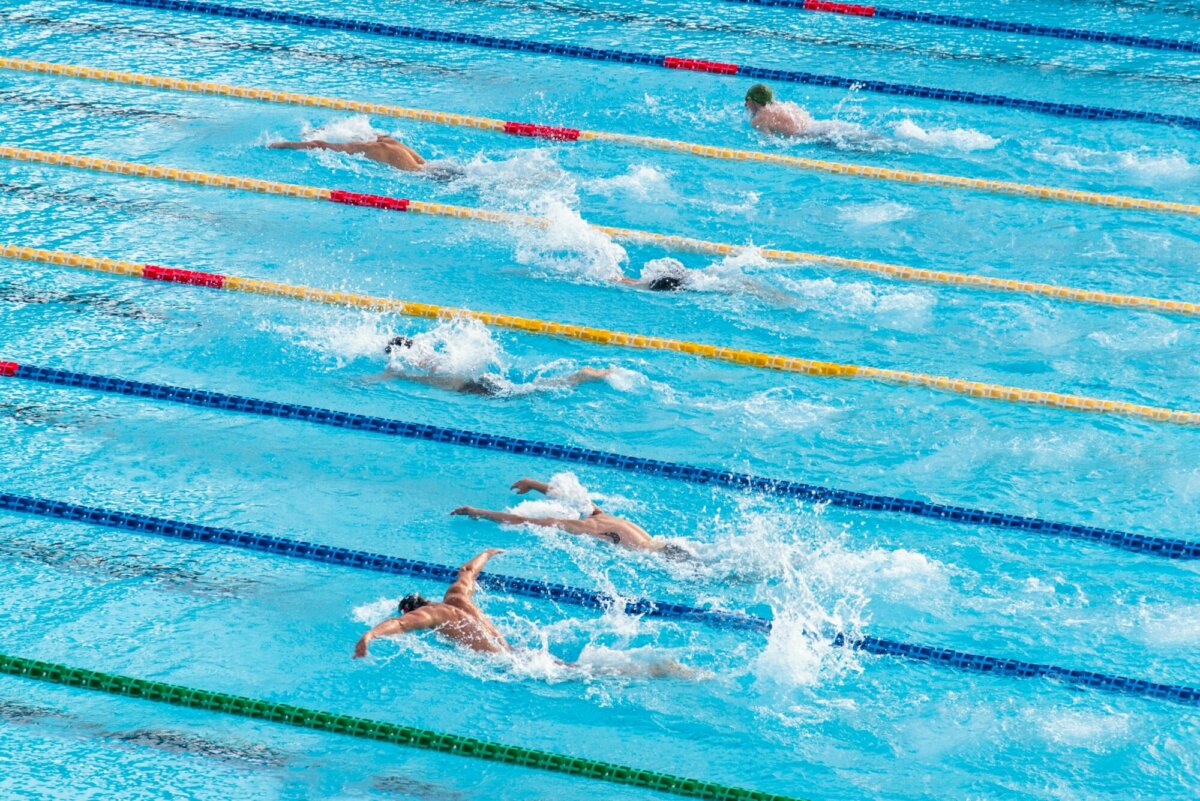
And what about women’s place in these Games?
According to the organizers, the 2024 Olympics in France will be the first gender-equal Games in history, with 5,250 qualified women and 5,250 men. But the road has been long to get there.
In 1900, first participation of women in the Olympics at the Paris Games, for the golf and tennis events. Back then, women were only 22 out of 997 athletes. In 1896, they had not been able to participate at the first edition because Pierre de Coubertin, president of the Olympic Commitee, personally oppose it.
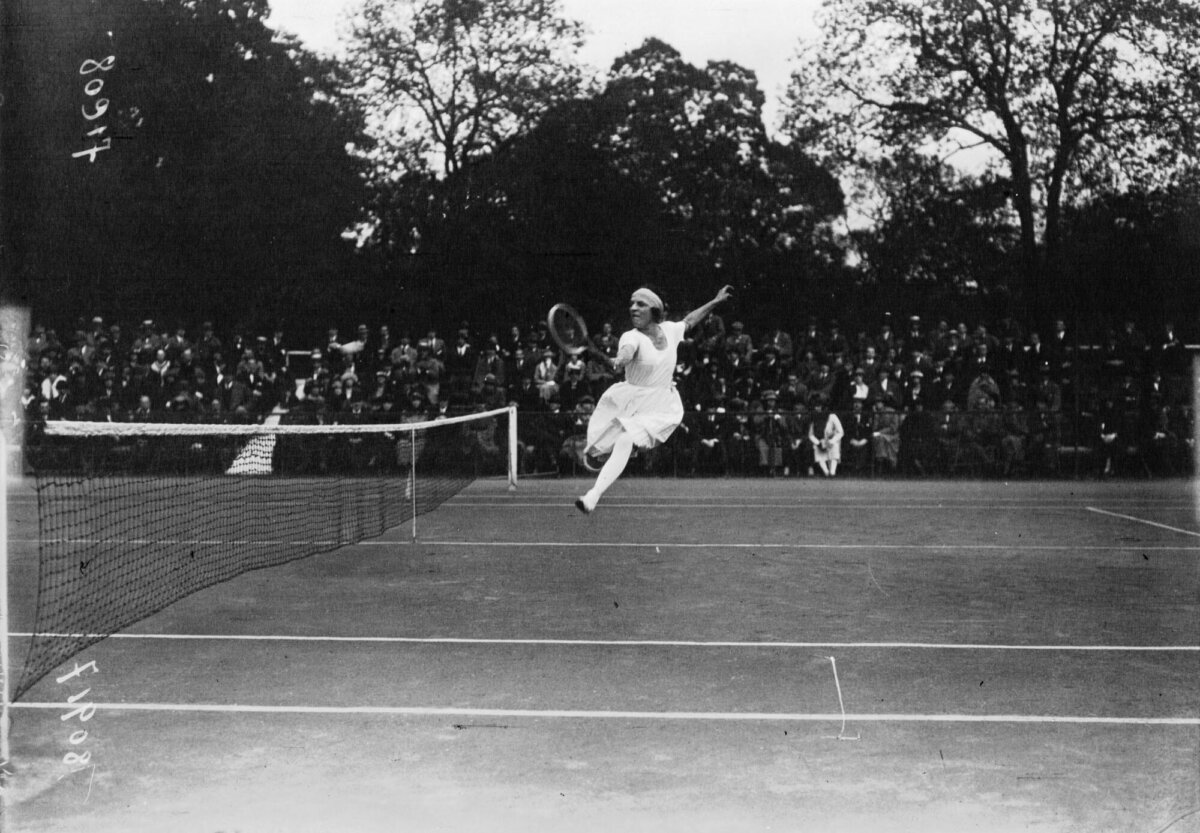
Suzanne Lenglen in 1920
Alice Milliat organized the first Women’s World Games in 1922, an equivalent of the Olympic Games, but only open to female competitors. They allowed sportswomen to compete in certain sports that were then forbidden to them (athletics, discus throw…).
Realizing the success of these World Games, the IOC (after Coubertin’s departure) decided to gradually increase the number of sports open to women : 1928 for the first women’s 800m (later abandoned up until 1960 because this first course was an “afflicting spectacle” of apparently too fragile women), 1984 for the marathon, 1987 for the hammer throw, 2014 for women’s ski jumping, considered dangerous for ladies. We waited until 2004 for women’s individual saber (2008 for teams), but in order to integrate women’s saber that year, it was decided to remove women’s team foil, which fortunately returned to the next Games. The latest one, women’s boxing for the 2012 London Games. Today, all Olympic sports include women’s events, however, certain events are reserved for men or women only: thus, if you have tickets for women’s Greco-Roman wrestling, they are unfortunately fake.
An array of champions
Who won the most medals? Who was the youngest Olympic champion? The oldest? Discover these exceptional athletes below:
1st woman to win an Olympic gold medal: Charlotte Cooper (UK) in 1900 for tennis.
The oldest Olympic medalist in history: the Swede Oscar Swahn won the silver medal in the men’s 100-meter team running deer, double shots event, at the age of 72.
The youngest Olympic medalist: the Greek gymnast Dimítrios Loúndras won a bronze medal in Athens in 1896 at almost 11 years old, in the team event of parallel bars. The youngest athlete to win the Olympics title is a young girl, Marjorie Gestring (USA), who won the gold medal in the three-meter diving event in 1936 at the age of 13.
The record for the number of medals is held by American Michael Phelps. He has won 28 medals in 4 Olympiads, including 23 titles (also a record).
The most titled woman in history is American athlete Allyson Felix, with 11 Olympics medals in sprint events.
Every edition has brought its share of stories, surprises and new features. The Paris Games will undoubtedly be no exception. In any case, we wish you all a good Olympiad and a beautiful summer!
Photo credit: Unsplash

